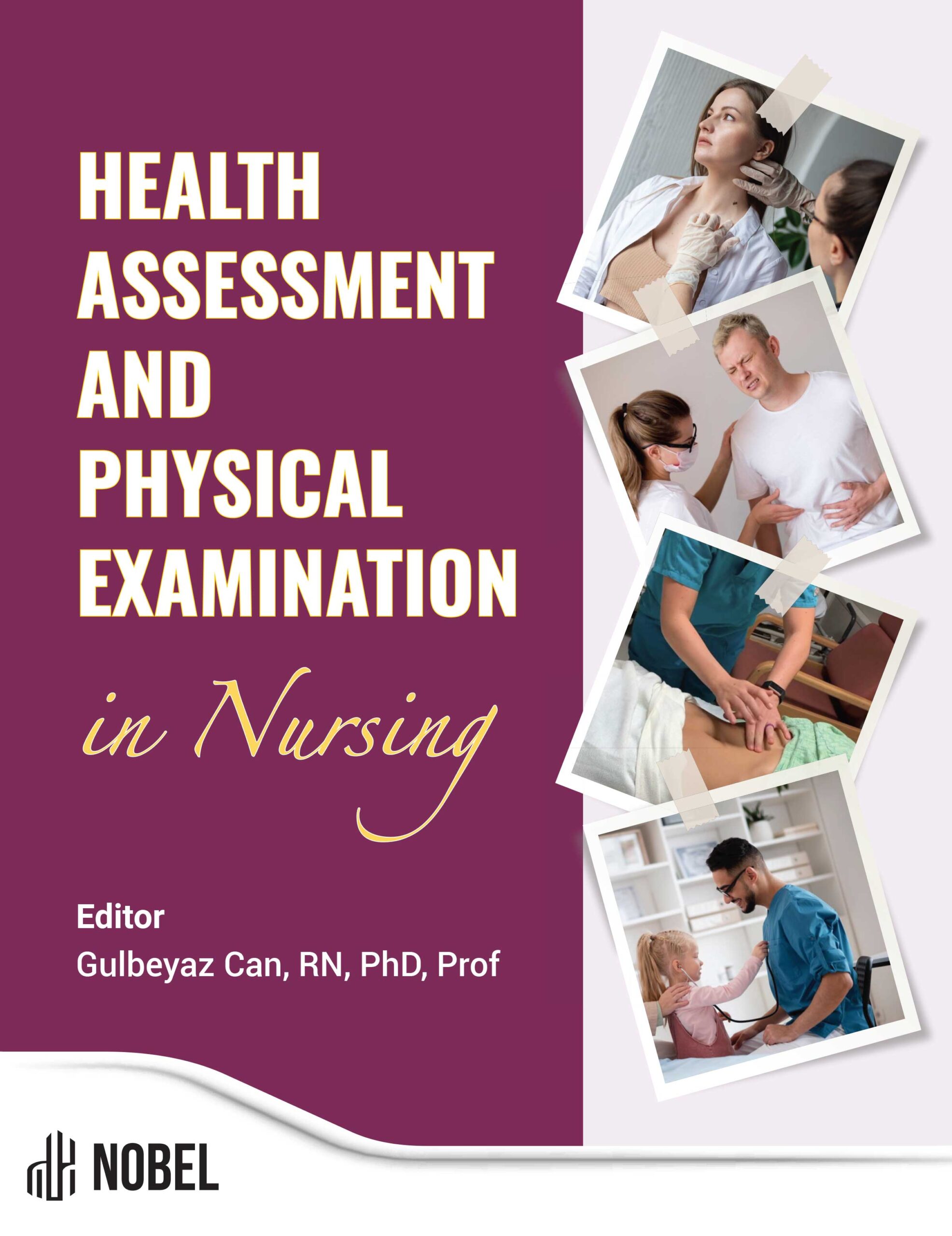Respiratory System
Gulbeyaz Can (Author)
Release Date: 2023-10-09
Respiratory assessment is an important component of medical practice that plays a fundamental role in evaluating the health and functionality of a person’s respiratory system. The respiratory system, which consists of the lungs, airways, and associated muscles, is responsible for the exchange of oxygen and carbon dioxide, which is essential for sustaining life, and helps [...]
Media Type
PDF
Buy from
Price may vary by retailers
| Work Type | Book Chapter |
|---|---|
| Published in | Health Assessment & Physical Examination in Nursing |
| First Page | 93 |
| Last Page | 111 |
| DOI | https://doi.org/10.69860/nobel.9786053359135.6 |
| ISBN | 978-605-335-913-5 (PDF) |
| Language | ENG |
| Page Count | 19 |
| Copyright Holder | Nobel Tıp Kitabevleri |
| License | https://nobelpub.com/publish-with-us/copyright-and-licensing |
Healthcare professionals, from nurses to respiratory therapists to physicians, rely on respiratory assessment to provide important information about a patient’s breathing patterns, lung function and overall well-being. Systematic assessment allows nurses to detect early signs of respiratory dysfunction, monitor progression of existing conditions and tailor interventions to individual patient needs. The information obtained from a thorough respiratory assessment serves as the basis for clinical decisions and facilitates the development of personalized care plans.
This chapter address the importance of respiratory assessment in the clinical setting and highlight its role in detecting respiratory problems early and providing a foundation for informed medical care. As we navigate through this topic, it will become clear that a well-performed airway examination is an invaluable tool for healthcare providers who care about the well-being of their patients.
Gulbeyaz Can (Author)
Professor, Istanbul Cerrahpasa University
https://orcid.org/0000-0002-5368-0893
3Gulbeyaz Can born in 1971, Kardzhali, Bulgaria. In 1993, she completed nursing education at Istanbul University Florence Nightingale School of Nursing. Between 1993 and 1995, she worked as an intensive care nurse in cardiovascular surgery department at the Istanbul University Institute of Cardiology. Her academic life started in 1995, as a research assistant at the Medical Nursing Department in Istanbul University Florence Nightingale School of Nursing. In 1996, she completed her master thesis, studying the efficacy of patient education in managing chemotherapy-related side effects and in 2001, PhD thesis, assessing the fatigue level and care needs of the breast cancer patients. In 2010, she was promoted to Associate Professor and in 2015 to a full Professor of the Medical Nursing Department and still continues this duty.
She has many contributions to the literature on cancer, palliative care, and other research topics. She has many national and international publications, presentations and lectures. Th e focus of her studies is an evidence-based symptom management in oncology. Five consensus meeting address this issue was organized by her in last 10 years. In all meetings standards of care in oncology nursing was established to ensure better care for cancer patients and reference books reflecting the decisions taken during the meetings were published and presented to all nurses working in Oncology.
“Leman Birol Award” in 2005 by the Turkish Oncology Nursing Association and “The International Award for Contributions in Cancer Care” by ONS in 2018 was given to Prof.Dr. Gulbeyaz Can for her contributions to Oncology Nursing.
Pierce J. The thorax and Lungs. In: Bickley LS, Szilagyi PG, editors. Bates’ guide to physical examination and history-taking. 11th ed. Philadelphia: Wolters Kluwer Health | Lippincott Williams & Wilkins; 2013. p. 293–332.
Eisel SJ. Nursing Assessment Respiratory System. In: Lewis SL, Dirksen SR, Heitkemper MM, Bucher L, editors. Medical-Surgical Nursing: Assessment and Management of Clinical Problems. 9th ed. St. Louis, Missouri : Mosby, an imprint of Elsevier Inc; 2014. p. 475–96.
McLaff erty E, Johnstone C, Hendry C, Farley A. Respiratory system part 1: pulmonary ventilation. Nursing Standard. 2013 Jan 30;27(22):40–7.
Hogstel M, Curry L. Health Assessment Through the Life Span. 4th ed. Philadelphia, PA: F.A. Davis; 2005.
Simpson H. Respiratory assessment. British Journal of Nursing. 2006 May 1;15(9):484–8.
Modi P, Tolat S. Vocal Fremitus. In: StatPearls. Treasure Island (FL): StatPearls Publishing; 2023. p. 29763013.
Yernault J, Bohadana A. Chest percussion. European Respiratory Journal. 1995 Oct 1;8(10):1756–60.
Bohadana A, Izbicki G, Kraman SS. Fundamentals of Lung Auscultation. New England Journal of Medicine. 2014 Feb 20;370(8):744–51.
Kraman SS. Lung Sounds for the Clinician. Arch Intern Med. 1986 Jul 1;146(7):1411.
Loudon R, Murphy RL. Lung sounds. Am Rev Respir Dis. 1984 Oct;130(4):663–73.
Koster MEY, Baughman RP, Loudon RG. Continuous Adventitious Lung Sounds. Journal of Asthma. 1990;27(4):237–49
| onix_3.0::thoth | Thoth ONIX 3.0 |
|---|---|
| onix_3.0::project_muse | Project MUSE ONIX 3.0 |
| onix_3.0::oapen | OAPEN ONIX 3.0 |
| onix_3.0::jstor | JSTOR ONIX 3.0 |
| onix_3.0::google_books | Google Books ONIX 3.0 |
| onix_3.0::overdrive | OverDrive ONIX 3.0 |
| onix_2.1::ebsco_host | EBSCO Host ONIX 2.1 |
| csv::thoth | Thoth CSV |
| json::thoth | Thoth JSON |
| kbart::oclc | OCLC KBART |
| bibtex::thoth | Thoth BibTeX |
| doideposit::crossref | CrossRef DOI deposit |
| onix_2.1::proquest_ebrary | ProQuest Ebrary ONIX 2.1 |
| marc21record::thoth | Thoth MARC 21 Record |
| marc21markup::thoth | Thoth MARC 21 Markup |
| marc21xml::thoth | Thoth MARC 21 XML |

